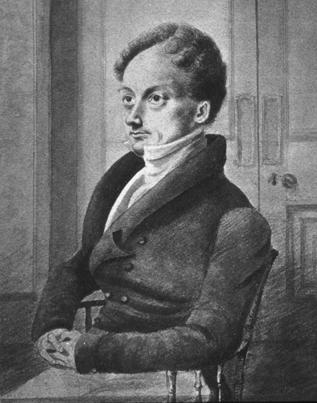
In the late 1970s, James M. Buchanan told a Portuguese audience that he had been “reading a very interesting book … [an early 19th-century] debate between James Mill and [T. B.] Macaulay” that provided a “view of the institutional process” that greatly differed “from what you find anywhere today.” Indeed, Buchanan noted that he favored a “kind of return to the thinking of that period, in thinking about institutional rules.”
[46] Needless to say, aspects of James Mill’s famous 1820 essay “Government”
[47] have much similarity to Buchanan’s worst-case philosophy of constitutional political economy.
[48] For Mill, the paradigmatic example of worst-case government is one where government is a slave-driver: The “ruling One [i.e., monarchy], or the ruling Few [i.e., aristocracy], would,
if checks did not operate in the way of prevention, reduce the great mass of the people subject to their power ... to t
he condition of negroes in the West Indies” (emphasis added).
[49] As Mill noted, those who would deny the empirical relevance of his prima facie implausible worst-case model of government would do well to meditate upon the “decisive” experiment afforded by the way in which the “English gentleman … a favourable specimen of civilization, of knowledge, of humanity, of all the qualities, in short, that make human nature estimable” had readily made slaves of his “fellow creatures” in the West Indies: Indeed, Mill insisted that “Wherever the same [unchecked] motives [i.e., the desire for power and wealth] exist, the same conduct as is displayed by the English gentleman may be expected to follow.… [N]ot one item in the motives that led English Gentlemen to make slaves of their fellow-creatures, and to reduce them to the very worst condition in which the negroes have been found in the West Indies, can be shown to be wanting, or to be less strong in the set of motives which universally operate upon the men who have power over their fellow creatures.”
[50]
As is well known, T. B. Macaulay was (to put it mildly) less than persuaded by the adequacy of Mill’s worst-case reasoning and wrote a devastating 1829 response to Mill. (Macaulay’s brilliant essay was published in the
Edinburgh Review.[51]) Indeed, Macaulay was equally scathing when he became embroiled in a heated and highly entertaining “bare-knuckle” debate over the merits of Mill’s essay with T. Perronet Thompson (the controversy raged in the pages of the
Edinburgh Review and the
Westminster Review.
[52]) Macaulay is generally considered to have amply demolished Mill’s worst-case logic and to have left the rather hapless Thompson (“defending” Mill on behalf of the
Westminster Review) bloody-nosed and flat on his back in the dust. As Sandra Peart has rightly noted in her essay, however, Macaulay appears to have greatly underrated the vital importance that Mill’s worst-case analytics implicitly placed on the associationist psychology that he would later set out in much detail in his 1829
Analysis of the Phenomena of the Human Mind.
[53] Indeed, one of Macaulay’s vehement complaints – there were many – about Mill’s 1820 theory of government was that Mill had seemingly “left” the way in which “sympathy” might check the abuse of power wholly “
out of consideration.”
[54] Nevertheless, as Sandra Peart justifiably notes, Mill’s assessment of the way in which sympathetic bias and partiality induced by exposure to “bad trains of association” warp our behavior may provide relatively solid foundations for what might otherwise appear as Mill’s rather implausible worst-case analytics.
[55] (“Bad” trains of association induce us to engage in blameworthy but profitable behavior.)
Of course, Macaulay did not deny Thompson’s charge that the “planter and the slave-driver” no more sympathized with their “negro” slaves than did the “epicure” sympathize with or care one jot about “the sentiments of oysters.”
[56] Nevertheless, Macaulay took Mill’s worst-case axioms at face value and promptly and brilliantly hoisted Mill with his very own “democratic” petard.
[57] As Mill’s
Analysis of the Phenomena of the Human Mind makes abundantly clear, however, his earlier analysis of the worst-case consequences of unchecked government power has rather more plausibility when we take into account Mill’s analysis of the way in which the desire for wealth and power conjunct with sympathetic partiality can lead to a narrowly self-interested “community of Interest” with the fellow members of one’s “Party, or class,” thereby assuring incessant demands for “Privileges … conferred by Legislative act.”
[58] I imagine that Sandra would supplement what I say above about Mill’s sympathy-based class analytics by rightly reiterating her very important point about the immense weight that Mill and his eldest son (and Adam Smith too) placed on the vitally important distinction between actual praise and blame and praiseworthiness and blameworthiness per se, and her point about the way in which praise and praiseworthiness often don’t map onto one another or march in tandem (with the way in which the allure of actual praise trumps the desire to be praiseworthy having detrimental consequences for humanity writ large). As Sandra notes, Mill’s worst-case analysis of faction, party, and class posits a sharp cleavage between the individual’s desire to truly merit the epithet praiseworthy (and not be blameworthy) and his or her far stronger response (far stronger because of their repeated exposure to “bad” trains of association) to the incentives provided by the allure of actual praise and the disincentive of actual blame (incentives which are intensified by sympathetic biases with “class” and “party”).
[59] As Sandra notes, moral education may provide a solution. Indeed, James Mill argued that “
[I]n minds happily trained, the love of Praiseworthiness, the dread of Blameworthiness, is a stronger feeling, than the love of
actual Praise, the Dread of
actual Blame” (emphasis added).
[60] Hence J. S. Mill’s noting of his father’s heavy emphasis on the importance of high-quality moral education, which could potentially provide an adequately countervailing weight to the “direct motive of obtaining praise where it is to be obtained by other means than desert.”
[61] Of course, moral education may prove a rather weak and non-robust reed
[62] when we try to engineer a collective switch from an inferior faction-ridden equilibrium (one where narrow self-interest and pervasive sympathetic biases work hand in all-too ugly hand) to a far superior “community interest writ large” equilibrium. Nevertheless, the Mills’ wager might well be the best “bet” in town (and is much preferred to the foolish option of placing a wager on a supposedly “benevolent” dictator). I leave this aside, however, and probably wisely so (space constraints and the terrors of a harsh editorial pen – even a pen wielded by praiseworthy “word-count liberals” – are not always to be bemoaned!).
[63]
All in all, and as Sandra aptly notes, Mill’s “Government” was not meant to be read as a standalone essay but in conjunction with his other essays (e.g., the wonderful essay “
Liberty of the Press”), and his defense of representative institutions presupposes a well-informed electorate, a truly free press (“publicity” provided the “
principle of life and strength to all other [electoral and constitutional] securities”), and a “democracy-induced” absence of sympathetic biases.
[64] Nevertheless, I wonder what happens under Mill’s set of mutually reinforcing institutions (democracy, a free press, etc.) when praise and praiseworthiness do not march in tandem. Are faction and sympathetic failure exacerbated? A free but ideologically polarized press may pander to actual and faction-biased praise and blame and may attack the moderation of praiseworthiness while praising blameworthy behavior, thus inducing a far greater cleavage between praise and praiseworthiness and much intensifying underlying factional biases and enmity (Fox News anyone?). This may well further reinforce an undesirable equilibrium and make our collective escape to something better much harder.
As Sandra notes, Macaulay devastatingly homed in on Mill’s flagrantly best-case argument that sympathy would assure an identity of interest between fathers and their offspring (with men under 40, let alone their wives, daughters, or single women, consequently having no need whatsoever of a vote). Unsurprisingly, Macaulay tore Mill’s argument into confetti and charged Mill with having all-too “placidly” dogmatized “away
the interests of one half of the human race.”
[65] As noted earlier, Buchanan was very interested in the Mill-Macaulay debate and Mill’s worst-case analytics. Nevertheless, I cannot imagine Buchanan ever making the all-too-best-case statement that “an interest identical with that of the whole community, is to be found in
the aggregate males of an age to be regarded as
sui juris.”
[66] I wonder, however, whether some of Buchanan’s readers tend to miss the role that unbiased sympathy (or something very similar) plays in Buchanan’s constitutional project in much the same way that it can be all too easily overlooked when assessing the merits of Mill’s worst-case thinking. For instance, Buchanan can be found arguing for constitutional rules “that will make it a relatively trivial matter as to the personal characteristics of those who happen to be selected as governors.”
[67] Elsewhere, however, Buchanan notes that “historical experience … [more than amply suggests that] constitutions can be reformed without being effectively enforced,” and he adds that “[p]erhaps more important than formal constitutional changes are changes in ethical attitudes that would make attempted reforms workable. . . . There must be some general understanding that exploitation implemented through politics is just as immoral as exploitation implemented in the private sector.”
[68] Thus, for Buchanan, as for James Mill, we need a far tighter alignment between that which is praiseworthy (and blameworthy) and behavior that is generally viewed as worthy of praise (or meriting blame). Peter Boettke often describes Buchanan’s constitutional project as a clarion call for a “politics which displays neither dominion nor discrimination” (e.g., no off-diagonals allowed). Perhaps praiseworthy choice is the only choice available when political equals make unanimous political choices behind a Rawls-type veil of ignorance.
[69]
Of course, real-world in-period politics is a complex mix of praiseworthiness and blameworthiness, and Sandra Peart rightly urges us all to reconsider our priors, try and set aside our biases (and narrow self-interest), and do our utmost to be praiseworthy.
[70] Again, however, how might we get from “here” to “there”? Similarly, what does “there” look like? For one thing, John Stuart Mill – working with much the same analytical toolkit as had his father – provided a very different assessment of what society might ultimately look like when juxtaposed with the vision of the future provided by his father. Ultimately, Sandra provides a most welcome defense of Millian democratic discussion – and by extension of Millian institutional experimentation – and she concludes by suggesting that the bumper sticker of choice might be “Discuss!” I have an alternative sticker to suggest. It is much less pithy than Sandra’s suggestion (and I will not hold my breath waiting for my royalty check) but one in keeping with the spirit of her suggestion: “Frank Knight was right (as were J. S. Mill and Buchanan). Pass it on!” This, of course, may presuppose that you drive an all-too-blameworthy gas-guzzling SUV rather than use a mode of transportation that is rather more praiseworthy.
Endnotes
[46.] James M. Buchanan, "Constitutional Design and Construction: An Economic Approach,” in
Choice, Contract, and Constitutions (Indianapolis, Ind.: Liberty Fund [1979] 2001), p. 109. Vol. 16 of
The Collected Works of James M. Buchanan (not available onine).
[47.] James Mill, “Government,” in
James Mill, The Political Writings of James Mill: Essays and Reviews on Politics and Society, 1815-1836, ed. David M. Hart (Liberty Fund, 2013). <
/titles/2520#lf1624_head_015>.
[48.] Indeed, Geoffrey Brennan and Buchanan acknowledge that their Leviathan model of government marks something of a return to the worst-case “spirit of the classical political economists.” Geoffrey Brennan and James M. Buchanan,
The Power to Tax (Indianapolis, Ind.: Liberty Fund, [1980] 2000), vol. 9 of
The Collected Works of James M. Buchanan, p. 220; <
/titles/2114#Buchanan_0102-09_570>.
[49.] Mill, “Government.” Bentham provides a similar worst-case assessment of government: “[T]ake the case of
Negro slavery.… The Slave-holder – it may be said – for it is continually said – has an interest in common with that of his slaves. True: and so has the Mail-Coach Contractor in common with that of his horses. While working them, and so long as they appear able to work, he accordingly allows them food. Yet, somehow or other, notwithstanding this community of interest, so it is that but too often Negro as well as horse are worked to the very death. – How happens this? – How? – but because in the same breast with the conjunct interest is lodged a separate and sinister interest, which is too strong for it … [Hence] the condition of the poor people is day by day approaching nearer and nearer to the condition of the Negro and the horse” (Jeremy Bentham, “Plan of Parliamentary Reform,” London: R. Hunter, 1817, xxvi-xxvii). See online the Bowring edition of Bentham's Works <
/titles/1922#Bentham_0872-03_4982>. Mill (“Government”) is much taken by Montesquieu’s expression of this “important truth … ‘
C'est une expérience éternelle que tout homme qui a du pouvoir est porté à en abuser; il va jusqu'à ce qu'il trouve des limites’” <
/titles/2520#lf1624_footnote_nt015>. This translates as “Experience constantly proves that every man who has power is impelled to abuse it; he goes on till he is pulled up by some limits.” See C. T. Ramage, ed.,
Beautiful Thoughts from French and Italian Authors: With English Translations and Lives of the Authors, an English Index of Subjects Analytically Arranged, Also Numerous References to Parallel Passages from Latin, Greek, and English Authors (Liverpool: Edward Howell, 1866);
http://bit.ly/1n8WyfT or the OLL online version Book XI "Of the Laws which establish Political Liberty" Chap. IV <
/titles/2520#lf1624_footnote_nt015>. Brennan and Buchanan use the same maxim as an epigraph to
The Power to Tax <
/titles/2114#Buchanan_0102-09_22>.
[50.] For Buchanan, the worst-case does not necessarily have empirical relevance, but is the contingency we truly want to avoid (see David M. Levy, “Robust Institutions,”
Review of Austrian Economics,2002, 15 (2-3), pp. 131-42). Also see James Mill, “Government.”
[51.] Macaulay’s wonderful “Mill’s Essay on Government: Utilitarian Logic and Politics,” is reprinted in Jack Lively and John Rees, eds.,
Utilitarian Logic and Politics, (Oxford: Clarendon Press, 1978), pp. 99-129. See also online <
/titles/99#lf1228-01_head_036>.
[52.] The entire fascinating debate is reprinted in Lively and Rees,
Utilitarian Logic and Politics.
[53.] James Mill,
Analysis of the Phenomena of the Human Mind, (London: Baldwin and Cradock,1829). As John Stuart Mill later noted, James Mill’s “fundamental doctrine [in psychology] was the formation of all human character by circumstances, through the universal Principle of Association, and the consequent unlimited possibility of improving the moral and intellectual condition of mankind by education.
Of all his doctrines none was more important than this, or needs more to be insisted on.” John Stuart Mill,
The Collected Works of John Stuart Mill,
Volume I – Autobiography and Literary Essays, ed. John M. Robson and Jack Stillinger, introduction by Lord Robbins (Toronto: University of Toronto Press, London: Routledge and Kegan Paul, 1981); <
/titles/242#Mill_0223-01_367>.
[54.] Macaulay, “Utilitarian Theory of Government.” See Lively and Rees,
Utilitarian Logic and Politics, p. 216. Also online <
/titles/99#lf1228-01_head_039>.
[55.] “A very general idea, such as that of
Mankind, is an indistinct idea; and no strong association is formed with it, except by the means of Education.
In the common run of men, the narrow sympathies, alone, act with any considerable force. Such men can sympathize with … their own Family, or their own class …
[T]o sympathize with mankind at large, or even with the body of the people in their own country, exceeds the bounds of their contracted affections.” James Mill,
Analysis of the Phenomena of the Human Mind, vol. 2, pp. 231-32. (Emphasis added.)
[56.] T. Perronet Thompson, “‘Greatest Happiness’ Principle.” See Lively and Rees,
Utilitarian Logic and Politics, p. 136.
[57.] Macaulay charged that Mill’s democratic legislature – composed of “private men” who were “zealous for the interests of the community” – would necessarily have a worst-case interest once elected, an interest “opposite to the interests of the community,” and “according to Mr. Mill … [thus] produce measures opposite to the interests of the community (Macaulay “Mill’s Essay on Government,” Lively and Rees,
Utilitarian Logic and Politics,pp. 114-15). And online <
/titles/99#Macaulay_1228-01_817>. Nevertheless, Mill presupposed that democratically elected representatives who are answerable to a wide and informed electorate will sympathize with the wider interest of the community writ large and not with a narrow self-interested and frequently pocket-borough owning aristocratic class.
[58.] “There is no Love of Class … but in a Privileged Order.” Mill,
Analysis of the Phenomena of the Human Mind, p. 188. For Mill, a class proper is any faction or group that has an interest “in common … which is not in common to the rest of the community” (p. 187). Mill’s 1829 analysis of “class” leaves aside the “associations … the members of a governing class have with one another” other than the “associations connected with privilege” (p. 188).
[59.] Mill and Buchanan are much taken by Hume’s famous dictum “that, in contriving any system of government, and fixing the several checks and controuls of the constitution, every man ought to be supposed a knave.” As Hume goes on to explain, however, this dictum may well apply “in the case of politics” yet not in “fact” (“men are generally more honest in their private than in their public capacity”) because of “sympathetic biases.” Men will “go to greater lengths to serve a party, than when their own private interest is alone concerned. Honour is a great check upon mankind: But where a considerable body of men act together, this check is, in a great measure, removed; since a man is sure to be approved of by his own party, for what promotes the common interest; and he soon learns to despise the clamours of adversaries. To which we may add, that every court or senate is determined by the greater number of voices; so that, if self-interest influences only the majority, (as it will always do) the whole senate follows the allurements of this separate interest, and acts as if it contained not one member, who had any regard to public interest and liberty.” David Hume,
Essays, Moral, Political, and Literary. Indianapolis, Ind. : Liberty Fund, 1977 <
/titles/704#Hume_0059_147>. I think it very noteworthy that Mill quotes these particular passages in his delightfully titled surrogate response to Macaulay (directed at Sir James Mackintosh). See Mill,
A Fragment on Mackintosh: Strictures on Some Passages in the Dissertation by Sir James Mackintosh, Prefixed to the Encyclopedia Britannica (London: Baldwin and Cradock, 1835, pp. 280-81).
[60.] James Mill,
Analysis of the Phenomena of the Human Mind, p. 249. As J.S. Mill himself (in editorial notes to the 1869 edition of this work of his father’s 1829 work explained, moral education – favorable “circumstances” – would generate a powerful association “between
deserving praise and
obtaining it” (London: Longmans, Green, Reader, and Dyer, vol. 2, pp. 298-99, emphasis added). (J.S. Mill's notes are available onlin, James Mill's Analysis of the Phenomena of the Human Mind (1869) in John Stuart Mill,
The Collected Works of John Stuart Mill, Volume XXXI – Miscellaneous Writings, ed. John M. Robson (Toronto: University of Toronto Press, London: Routledge and Kegan Paul, 1989). <
/titles/238#lf0223-31_head_024>.) As James Mill explained, a “happily” trained mind would view “the secondary feeling [desire to be praiseworthy per se] … [as by far] more powerful than the primary [desire for praise per se].” (James Mill, 1829, p. 249).
[61.] See J. S. Mill’s 1869 editorial notes, p. 299. As James Mill explained, a “happily” trained mind would view “the secondary feeling [desire to be praiseworthy per se] … [as by far] more powerful than the primary [desire for praise per se]” (Mill, 1829, p/ 249).
[62.] Levy, “Robust Institutions.”
[63.] As J. S. Mill noted in 1879, any requisite improvements in moral education are “necessarily very gradual. . . . [T]he future generation is educated by the present, and the imperfections of the teachers set an invincible limit to the degree in which they can train their pupils to be better than themselves.” In
Chapters on Socialism (1879) "The Difficulties of Socialism" <
/titles/232#Mill_0223-05_1338>.
John Stuart Mill,
The Collected Works of John Stuart Mill, Volume V – Essays on Economics and Society Part II, ed. John M. Robson, introduction by Lord Robbins (Toronto: University of Toronto Press, London: Routledge and Kegan Paul, 1967); <
/titles/232#Mill_0223-05_1338>.
Indeed, Mill – writing to Harriet Taylor in 1849 – noted that he could not “persuade” himself that she did “not greatly overrate the ease of making people unselfish. Granting that in ‘ten years’ the children of a community might by teaching be made ‘perfect’ it seems to me that to do so there must be perfect people to teach them.” John Stuart Mill,
The Collected Works of John Stuart Mill, Volume III – The Principles of Political Economy with Some of Their Applications to Social Philosophy (Books III-V and Appendices), ed. John M. Robson, Introduction by V.W. Bladen (Toronto: University of Toronto Press, London: Routledge and Kegan Paul, 1965); <
/titles/243#Mill_0223-03_1124>.
[64.] James Mill, “Liberty of the Press,” in
James Mill, The Political Writings of James Mill: Essays and Reviews on Politics and Society, 1815-1836, ed. David M. Hart (Liberty Fund, 2013); <
/titles/2520#Mill_1624_1211>.
[65.] “[W]omen have always been, and still are, over the greater part of the globe, humble companions, playthings, captives, menials, beasts of burden.” Macaulay, “Mill’s Essay on Government,” in Lively and Rees,
Utilitarian Logic and Politics, p. 116. Also on.ine at <
/titles/99#Macaulay_1228-01_822>.
[66.] “Government.” Indeed, he continues, “The great principle of security here is, that the men of forty have a deep interest in the welfare of the younger men.” As Mill explains in the
Human Mind, however, the sympathetic “father regards the son somewhat in the light of another self” (p. 178). <
/titles/2520#Mill_1624_1003>.
[67.] James M. Buchanan, “Constitutional Restrictions on the Power of Government,” In
Choice, Contract, and Constitutions (Indianapolis, Ind.: Liberty Fund, [1981] 2001), p. 47.
[68.] James M. Buchanan, “Distributional Politics and Constitutional Design,” in
Choice, Contract, and Constitutions, p. 275.
[69.] Buchanan’s vision of a nondiscriminatory politics is something over which all manner of folk can legitimately disagree when it comes to deciding what counts as nondiscrimination and nondominion. There is a very good reason why Buchanan and Rawls found each other so fascinating.
[70.] Is this a call for the Fox News viewer to sometimes watch Link TV and vice versa? I would argue that Smith-Mill lessons about praiseworthiness and blameworthiness are better taught by an hour or so watching the very best PBS kids shows (e.g.,
Arthur and
Theodore Tugboat).

 The problem of the “few” and the “many” is a perennial theme in political thought, and one grappled with at length by such luminaries as Aristotle, Machiavelli, and John Adams. In her essay, Professor Peart explores how James Mill, the utilitarian reformer, defined and attempted to resolve this problem in early 19th-century England. As Peart indicates, Mill’s ideal resolution would go well beyond a mere willingness of distinct groups and classes to simply “coexist.” Strictly speaking, the notion of “coexistence” entails little more than mutual tolerance or forbearance, such as the “peaceful coexistence” that marked the Cold War. As a zealous reformer with a utopian bent, Mill hoped to transcend mere “coexistence” and usher in an era of social unity, harmony, and beneficence.
The problem of the “few” and the “many” is a perennial theme in political thought, and one grappled with at length by such luminaries as Aristotle, Machiavelli, and John Adams. In her essay, Professor Peart explores how James Mill, the utilitarian reformer, defined and attempted to resolve this problem in early 19th-century England. As Peart indicates, Mill’s ideal resolution would go well beyond a mere willingness of distinct groups and classes to simply “coexist.” Strictly speaking, the notion of “coexistence” entails little more than mutual tolerance or forbearance, such as the “peaceful coexistence” that marked the Cold War. As a zealous reformer with a utopian bent, Mill hoped to transcend mere “coexistence” and usher in an era of social unity, harmony, and beneficence.
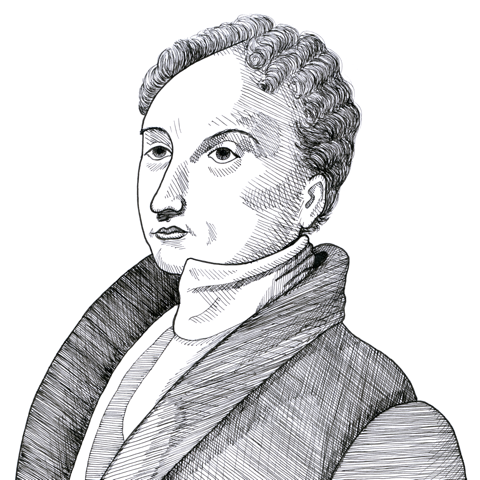 I begin this second round with brief responses to Professors Ball and Taylor. I then take up in more detail the mistake noted by Professors Farrant and Ball, James Mill’s failure to argue for an extension of the franchise to women (and children?). Next I examine his views on education and mention one niggling worry: education as a potential instrument of remaking. Finally, I touch upon the issue of idealism and actuality mentioned by Professors Farrant and Taylor – how to get from here to there?
I begin this second round with brief responses to Professors Ball and Taylor. I then take up in more detail the mistake noted by Professors Farrant and Ball, James Mill’s failure to argue for an extension of the franchise to women (and children?). Next I examine his views on education and mention one niggling worry: education as a potential instrument of remaking. Finally, I touch upon the issue of idealism and actuality mentioned by Professors Farrant and Taylor – how to get from here to there?

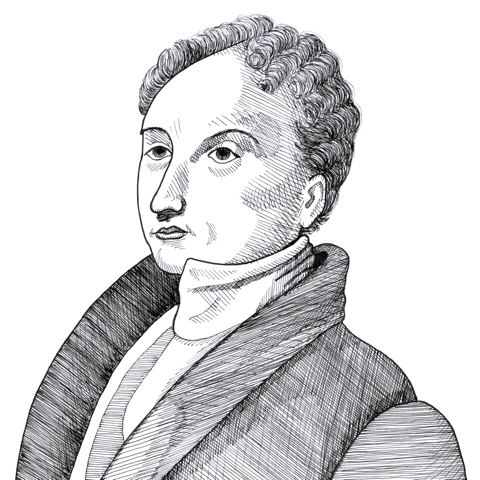
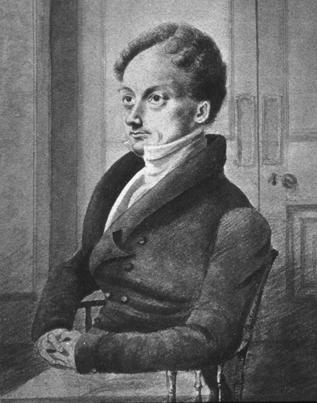 I earlier wondered whether “some of [James M.] Buchanan’s readers tend to miss the role that unbiased sympathy (or something very similar) plays in Buchanan’s constitutional project in much the same way that it can be all too easily overlooked when assessing the merits of Mill’s worst-case thinking.” As Sandra herself aptly noted, the all-too-thorny problem of how we might “move from here to there and, indeed, what ‘there’ is … is a problem that has puzzled political economists as different as James Buchanan and Amartya Sen. It’s a problem that is particularly vexing in the context of partiality (if we all were to gain it would be relatively straightforward to induce the change) … [and] factions that stand to lose through institutional reform.”
I earlier wondered whether “some of [James M.] Buchanan’s readers tend to miss the role that unbiased sympathy (or something very similar) plays in Buchanan’s constitutional project in much the same way that it can be all too easily overlooked when assessing the merits of Mill’s worst-case thinking.” As Sandra herself aptly noted, the all-too-thorny problem of how we might “move from here to there and, indeed, what ‘there’ is … is a problem that has puzzled political economists as different as James Buchanan and Amartya Sen. It’s a problem that is particularly vexing in the context of partiality (if we all were to gain it would be relatively straightforward to induce the change) … [and] factions that stand to lose through institutional reform.”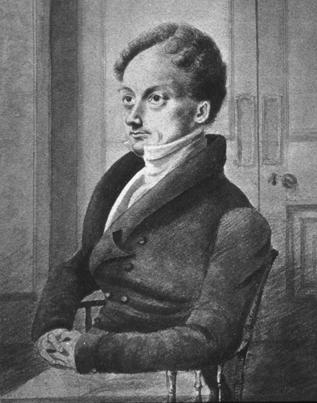


 Since our recent exchanges regarding James Mill have been rather high-minded and serious, I want to inject a note of levity, which David Hart’s welcome posting of Bentham’s Auto-Icon prompts me to do.
Since our recent exchanges regarding James Mill have been rather high-minded and serious, I want to inject a note of levity, which David Hart’s welcome posting of Bentham’s Auto-Icon prompts me to do.
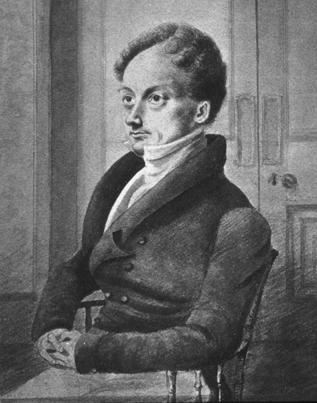
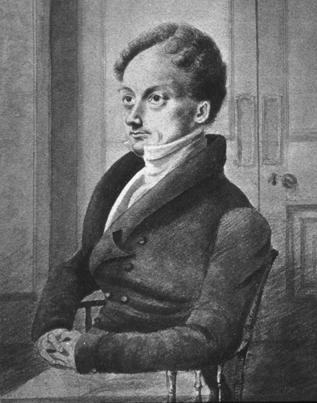
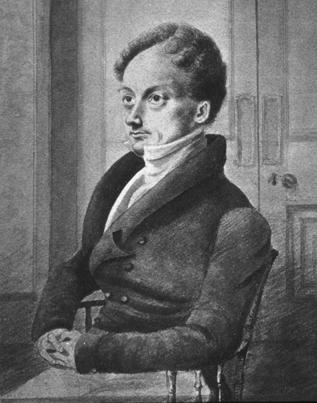


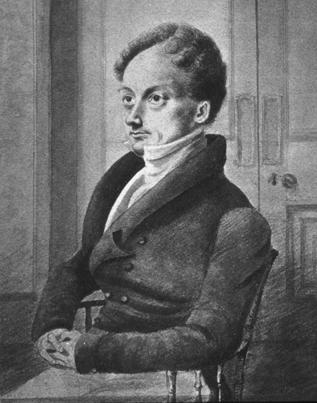
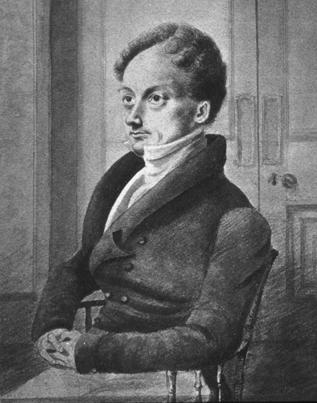
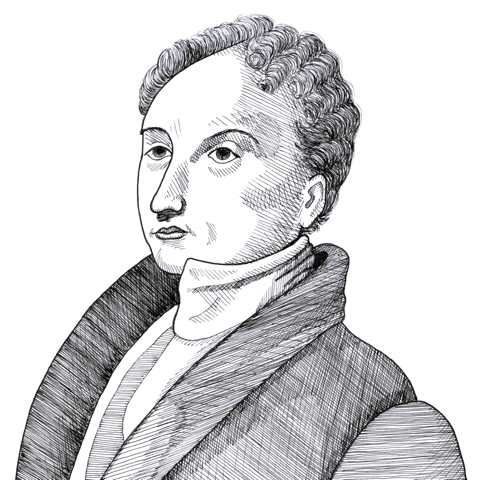 Professor Taylor writes that “it is no coincidence” that Plato was James Mill’s favorite philosopher; “when poured into the mold of Philosophic Radicalism” utilitarianism, he suggests, diverged from Professor Ball’s “moral and political philosophy of the Common Man” to something much less democratic and more aristocratic. I would to this add that perhaps Bentham and the older Mill represent a divergence in this respect from Adam Smith before them and John Stuart Mill afterwards. Perhaps the best passage from Smith that touches on this question -- and on the question of “expert advice” by the rulers generally -- is this passage on the Man of System:
Professor Taylor writes that “it is no coincidence” that Plato was James Mill’s favorite philosopher; “when poured into the mold of Philosophic Radicalism” utilitarianism, he suggests, diverged from Professor Ball’s “moral and political philosophy of the Common Man” to something much less democratic and more aristocratic. I would to this add that perhaps Bentham and the older Mill represent a divergence in this respect from Adam Smith before them and John Stuart Mill afterwards. Perhaps the best passage from Smith that touches on this question -- and on the question of “expert advice” by the rulers generally -- is this passage on the Man of System: Professors Farrant and Taylor ask us to think more about the question of approval – who approves and whether it’s warranted. This is indeed the key problem for which Adam Smith devised the “impartial spectator.” In Farrant’s view, Bentham’s auto-icon might serve a similar purpose, acting as a reminder from generations past about the appropriateness of our actions today. Such reminders may have motivational weight, albeit somewhat muted relative to the actual approval of actually living souls. I’m reminded of the proverbial phrase “turning over in her grave” as a conversational signal that someone (often a relative) would disapprove of an action. Acknowledging the signal, one feels obliged to explain why the proposed action is justified. Though I’m hesitant to disagree with James Buchanan, I would suggest that one need not believe that we are perfectible to believe that we might occasionally be nudged into “better” acts – acts that would obtain more wide approval – by reminders from living or dead people. Like Mises, however, J. S. Mill drew the line at wholesale institutional reform that would require “better” humans: as humans were presently constituted, he concluded, they were simply not ready for socialism on a wide scale.
Professors Farrant and Taylor ask us to think more about the question of approval – who approves and whether it’s warranted. This is indeed the key problem for which Adam Smith devised the “impartial spectator.” In Farrant’s view, Bentham’s auto-icon might serve a similar purpose, acting as a reminder from generations past about the appropriateness of our actions today. Such reminders may have motivational weight, albeit somewhat muted relative to the actual approval of actually living souls. I’m reminded of the proverbial phrase “turning over in her grave” as a conversational signal that someone (often a relative) would disapprove of an action. Acknowledging the signal, one feels obliged to explain why the proposed action is justified. Though I’m hesitant to disagree with James Buchanan, I would suggest that one need not believe that we are perfectible to believe that we might occasionally be nudged into “better” acts – acts that would obtain more wide approval – by reminders from living or dead people. Like Mises, however, J. S. Mill drew the line at wholesale institutional reform that would require “better” humans: as humans were presently constituted, he concluded, they were simply not ready for socialism on a wide scale.